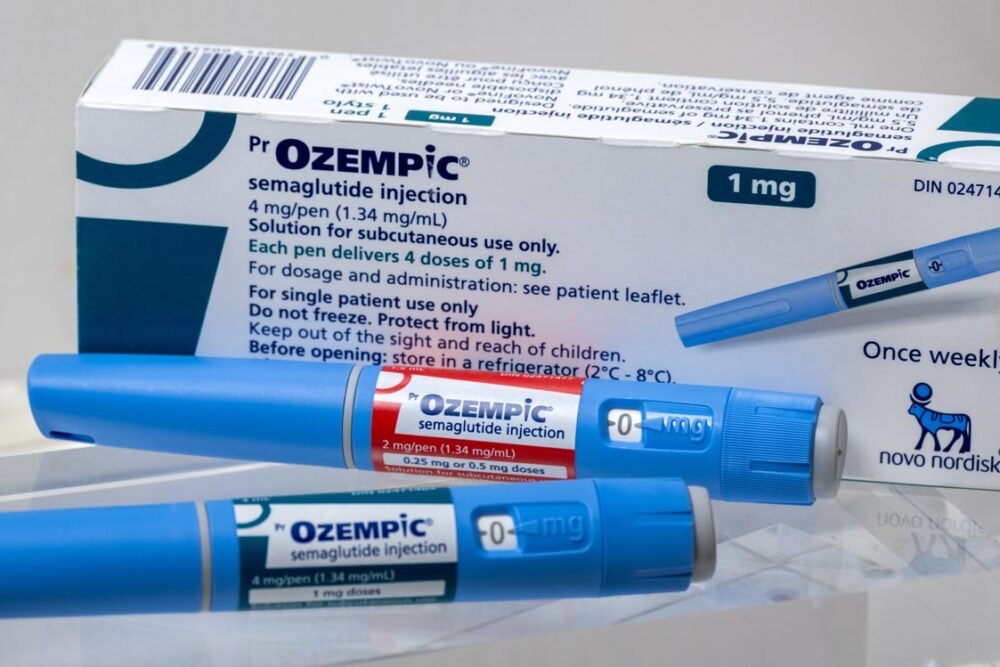Advertisment
Ozempic (and similar medications) may be the new treatment for opioid and alcohol use disorder

A new study published in the scientific journal Addiction has found that people with opioid or alcohol use disorder (OUD, AUD) who take Ozempic or similar medications to treat diabetic/weight-related conditions appear to have a 40% lower rate of opioid over dose and a 50% lower rate of alcohol intoxication than people with OUD and AUD who do not take Ozempic or similar medications.
Ozempic is one of several medications, called glucagon-like peptide-1 receptor agonists or GLP-1 RAs, that are prescribed to treat diabetes, obesity, and other weight-related medical conditions. The medications interact with a region of the brain – the mesolimbic system – to reduce appetite and trigger satisfaction after eating. The mesolimbic system overlaps with the brain processes that govern addictive behaviors. This overlap suggests that GLP-1 RAs and similar medications might also alter the reward-response pathways associated with substance use. ‘Similar medications’ include glucose-dependent insulinotropic polypeptide (GIP) agonists like the weight-loss medication Mounjaro.
Until now, most of the existing research into using GLP-1 RAs and GIPs to treat substance use disorders consists of animal studies and small-scale clinical trials.
This new large-scale human study looked at 503,747 people with a history of opioid use disorder (OUD), of which 8,103 had a prescription for a GLP-1 RA or GIP. The study found that people with OUD who had a GLP-1 RA or GIP prescription had a 40% lower rate of opioid overdose compared with those who did not have a prescription.
The study also looked at 817,309 people with a history of alcohol use disorder (AUD), of which 5,621 had a prescription for a GLP-1 RA or GIP. The study found that people with AUD who had a GLP-1 RA or GIP prescription had a 50% lower rate of alcohol intoxication compared with those who did not have a prescription.
This study may introduce a promising new treatment for substance use disorders.
Full citation for article: Qeadan F, McCunn A, and Tingey B. The Association Between Glucose-dependent Insulinotropic Polypeptide and/or Glucagon-like Peptide-1 Receptor Agonist Prescriptions and Substance-Related Outcomes in Patients with Opioid and Alcohol Use Disorders: A Real-World Data Analysis. Addiction. 2024. DOI: 10.1111/add.16679
Primary funding: No funding.
Declaration of interests: The authors have no conflict of interest to report.





